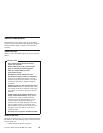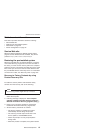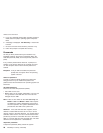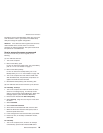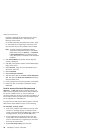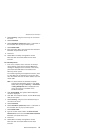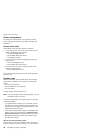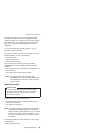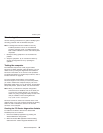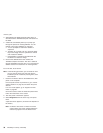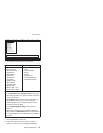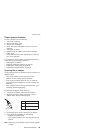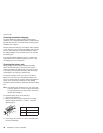
computer enters the power-saving mode automatically.
This default low-battery behavior is independent of the
operating system; so if you have set the low-battery alarm,
the computer may not do what you specified. It chooses
either your setting or the default setting, whichever is
appropriate.
If you are using the ACPI operating system, only the
low-battery alarm is available.
To cause the computer to return from standby mode and
resume operation, do one of the following:
v Press the Fn key.
v Open the LCD cover.
v Turn on the power switch.
Also, in either of the following events, the computer
automatically returns from standby mode and resumes
operation:
v
The ring indicator (RI) is signaled by a serial device or a
PC Card device.
v The time set on the resume timer elapses.
Note: The computer does not accept any input
immediately after it enters standby mode. Wait a
few seconds before taking any action to reenter
operation mode.
Hibernation mode
Note for OS/2
If you are using OS/2 in the default format, HPFS,
you cannot create a hibernation file. If you want to
use hibernation mode, you will need to reinstall
OS/2 with FAT format.
In hibernation mode, the following occurs:
v The system status, RAM, VRAM, and setup data are
stored on the hard disk.
v The system is powered off.
Note:
If the computer enters the hibernation mode while it
is docked to the docking station, do not undock it
before resuming normal operation. If you do undock
it and then try to resume normal operation, you will
get an error message, and you will have to restart
the system.
To cause the computer to enter hibernation mode, do any
of the following:
v Press the Fn+F12 keys.
Related service information
General descriptions 33



